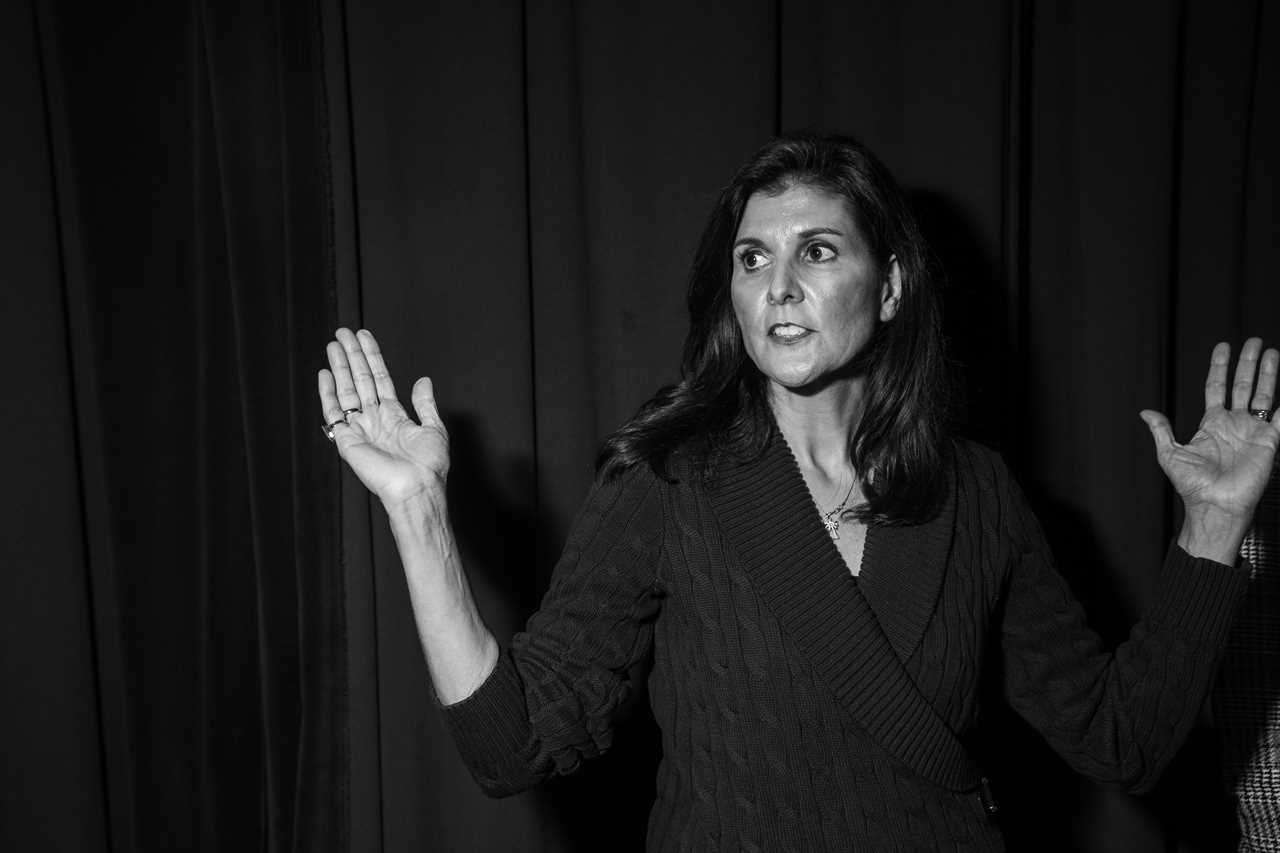
I empathize with Nikki Haley’s struggle with race because in many ways her struggle mirrors my own.
She and I were born 310 days apart in 1972. We both grew up in predominantly Black rural regions of South Carolina, she in Bamberg, the county seat of one of the state’s smallest counties, and me in the tiny town of St. Stephen in Berkeley County.
She and I went to schools still segregated and heavily underfunded decades after the Supreme Court supposedly put an end to such things with Brown v. Board of Education. Bamberg schools were among those that became known as part of the “Corridor of Shame” when 36 districts sued the state in 1993 for conditions that included raw sewage backed up in hallways, water fountains that didn’t work, and computers so old and useless they were stamped with “use by inmates only” because they had been donated by the Department of Corrections. Schools in Bamberg, Berkeley and other largely-Black areas had been sucked dry by an all-white state legislature that helped establish a private school system — for white students — by finding ways to funnel public and other dollars to them in defiance of desegregation laws.
Haley faced discrimination as part of the only Indian family in Bamberg. I faced discrimination in St. Stephen because I was Black and poor, common characteristics in town, and spoke with a severe stutter. Each of us has the kind of stories that are often used to illustrate the promise of the American Dream. If we can rise from such humble and unfair beginnings, anyone can, darn it! Our paths first intersected when I was a journalist in Myrtle Beach and she was running to become governor in 2010. I also voted for her in the Republican primary in part because I was taken aback by nasty rumors (that she denied) circulating about her private life. That she was possibly on her way to doing something I had assumed nearly impossible — winning the governorship of my native state as someone other than a white man — was a bonus.
But Haley often only empathizes with people like me when it advances her political pursuits. The discrimination she endured, which she used to craft her political brand, magically disappears (or its edges are sanded down) when she speaks to a crowd of people who want to believe it never existed. At times, she has weaponized her story against Black and brown people who don’t identify as conservative or the policies that might uplift them.
Haley is adept at deriding what she calls a destructive identity politics of the left, and in the next breath using identity politics to gain favor among a largely white GOP base desperate to hear how great America is and why it’s wrong to critique its racial past or present. In that sense, she’s very much like Dr. Ben Carson, who also ended up in former President Donald Trump’s cabinet after spending his presidential campaign admonishing Black people to pull ourselves up by our bootstraps.
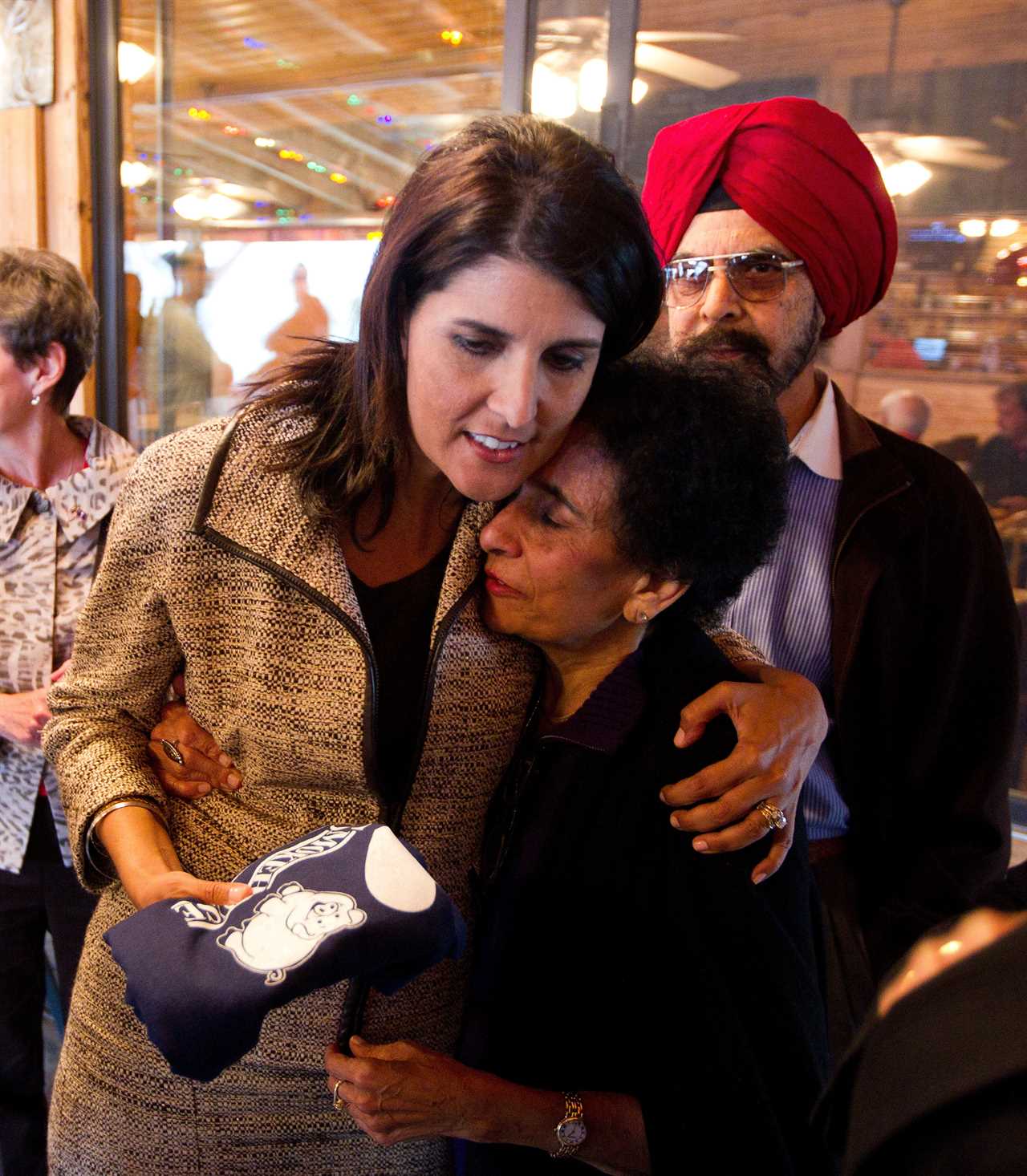
Or as Haley put it during the 2020 Republican National Convention: “America is not a racist country. This is personal for me. I am the proud daughter of Indian immigrants. They came to America and settled in a small Southern town. My father wore a turban. My mother wore a sari. I was a brown girl in a Black and white world. We faced discrimination and hardship. But my parents never gave in to grievance and hate.”
My Black parents never gave into grievance or hate either. Most Black people haven’t, despite what our families have endured for generations. I would have had no chance at success had they given in, or had I. And yet, it feels to me as though Haley expertly tells her story in a way to diminish and dismiss people like me, those who refuse to pretend the anger we sometimes feel at the obvious racism around us isn’t justified.
I know the power of Haley’s story, know of the pain she speaks when recounting what happened to her father when she was a young girl. Her father committed a cardinal sin in the Bible Belt Deep South: buying produce at a fruit stand while brown and wearing a turban. He was Sikh, the turban a part of his faith. Someone called the cops, who stood watch as he purchased his items. Haley has told the story in many ways over the years, including in her memoir. And it’s the incident Haley used when she pushed legislators in 2015 to remove the Confederate flag from the grounds of the South Carolina State House, even though she had done nothing until then to get it removed.
“I remember how bad that felt,” Haley has said about the fruit stand incident. “And my dad went to the register, shook their hands, said ‘Thank you,’ paid for his things and not a word was said going home. I knew what had just happened. That produce stand is still there and every time I drive by it, I still feel that pain. I realized that that Confederate flag was the same pain that so many people were feeling.”
Haley’s father had to swallow their bigotry, and even thank them for it, while handing them his hard-earned dollars. That’s what was expected when white men demanded stoic subservience. In that same era, my father had to quietly endure insults even from white children who would slur him knowing their skin color would protect them.
I know such incidents leave an indelible mark on your psyche, on your soul. You never grow out of it, especially if, like Haley, you and your family faced racial and religious discrimination in numerous ways. Her parents, immigrants from India, initially had trouble finding housing in Bamberg because of Jim Crow laws and social norms. Haley was removed from the Little Miss Bamberg beauty pageant as a 5-year-old because the insidious race-based system did not make space for someone like her, not white but not Black either. She wanted to be a pilgrim in a school play but had to portray Pocahontas instead. (“Did they realize that I wasn’t that kind of Indian?” she would later say.)
She endured racism as an adult when in 2010 she was vying to become the first woman and person of color to become South Carolina’s governor. State Sen. Jake Knotts, a Republican like Haley but an ally of one of her opponents, slurred her as a “raghead.” (He applied the term to then-President Barack Obama as well.) The Lexington County Republican Party censured him and told him to resign. Instead, he gave a half-hearted apology “for an unintended slur” but proclaimed that Haley was “pretending to be someone she is not, much as Obama did.”
Growing up in the circumstances Haley and I did, you realize quite early you will be pressured to make a certain number of compromises and sacrifices to become successful in white people’s eyes. You may cry in private but present a stiff upper lip in public. That might mean swallowing hard, like Haley’s parents did and my parents did, to accommodate the white people in your orbit. And sometimes that meant unintentionally buying into their delusions, or having the good sense and good “God bless your heart” Southern manners to not shatter their myths. We were taught by history teachers in our public schools from books written by Confederate apologists and descendants. We learned that enslaved people were happy and that enslavers treated them like family members, and that the Confederate flag was “a symbol of respect, integrity and duty” and “a way to honor ancestors who came to the service of their state.” Those were Haley’s words. But she has also said the opposite, reminding audiences the flag was also seen by some as “a deeply offensive symbol of a brutally oppressive past.”
In an interview with “The Palmetto Patriots” during her first run for governor in 2010, Haley defended states’ right to secede and said the Confederate flag was not racist and its location was a “compromise of all people, that everybody should accept.” She was referring to the general assembly’s decision in 2000, under pressure from a boycott by the NAACP, to remove the flag from atop the statehouse and place it in front of the building. As part of the “compromise,” the legislature also initiated plans for the construction of an African American monument to be installed at the state Capitol and established an official Dr. Martin Luther King Jr. state holiday to go along with a Confederate Memorial Day. That “compromise” was what counted for racial progress in South Carolina. In exchange for the privilege of having the flag of traitors relocated — but continuing to fly on Capitol grounds — Black citizens had to accept a state holiday dedicated to the traitors who wanted us to be enslaved forever.
At the same time, Haley made history by appointing Tim Scott to the U.S. Senate, making him the first Black man from the Deep South to serve in that chamber since Reconstruction. And she signed into law a bill that began to correct for decades-deep inequalities suffered by school districts like the ones she and I attended.
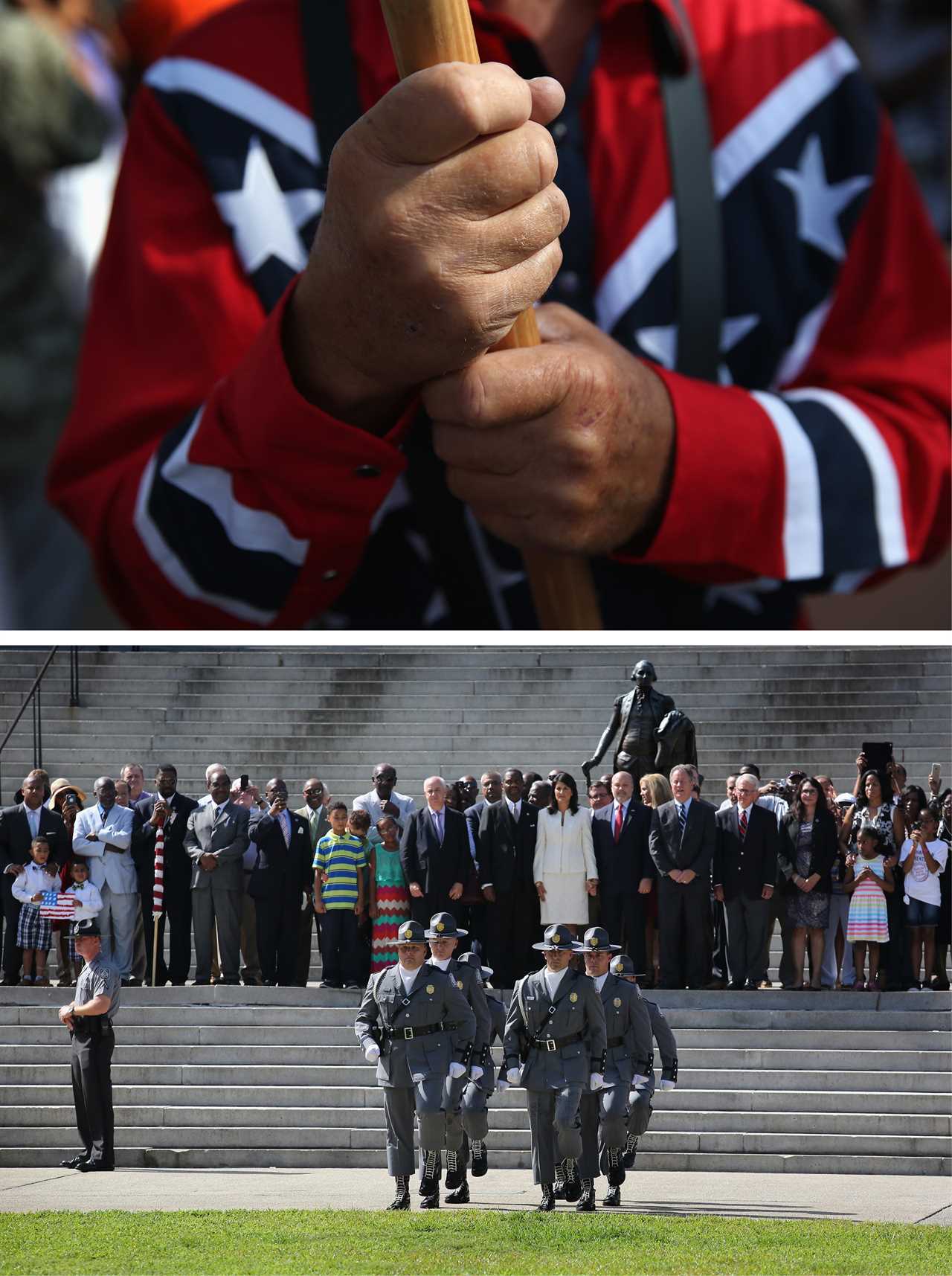
I know, in my bones, why Haley compromised so frequently on race, including when she declared during a reelection debate that the Confederate flag’s continued presence was no big deal. “I can honestly say I have not had one conversation with a single CEO about the Confederate flag,” she said in 2014 on her way to a comfortable victory.
I made similar compromises, convinced that was the best way to maintain friendships and relationships with white neighbors, friends and fellow Christians. Which is why I can tell you that a part of me for a very long time had an affinity for Robert E. Lee. I know he was an enslaver and the leader of the Confederate army. But growing up, he was “General Lee,” the cool orange car on the Dukes of Hazzard driven fast and wild by the good ole Duke boys and the man who allegedly knelt next to a Black person in a church after the Civil War to supposedly signal to white Southerners it was time to accept Black people as equals. Those were the stories and tall tales we were bathed in, fed, literally preached from the pulpit by white pastors. At the time, I didn’t know it was part of a decades-long Lost Cause campaign to reimagine those who seceded from the union to protect the peculiar institution that was race-based chattel slavery as the true heroes of American history.
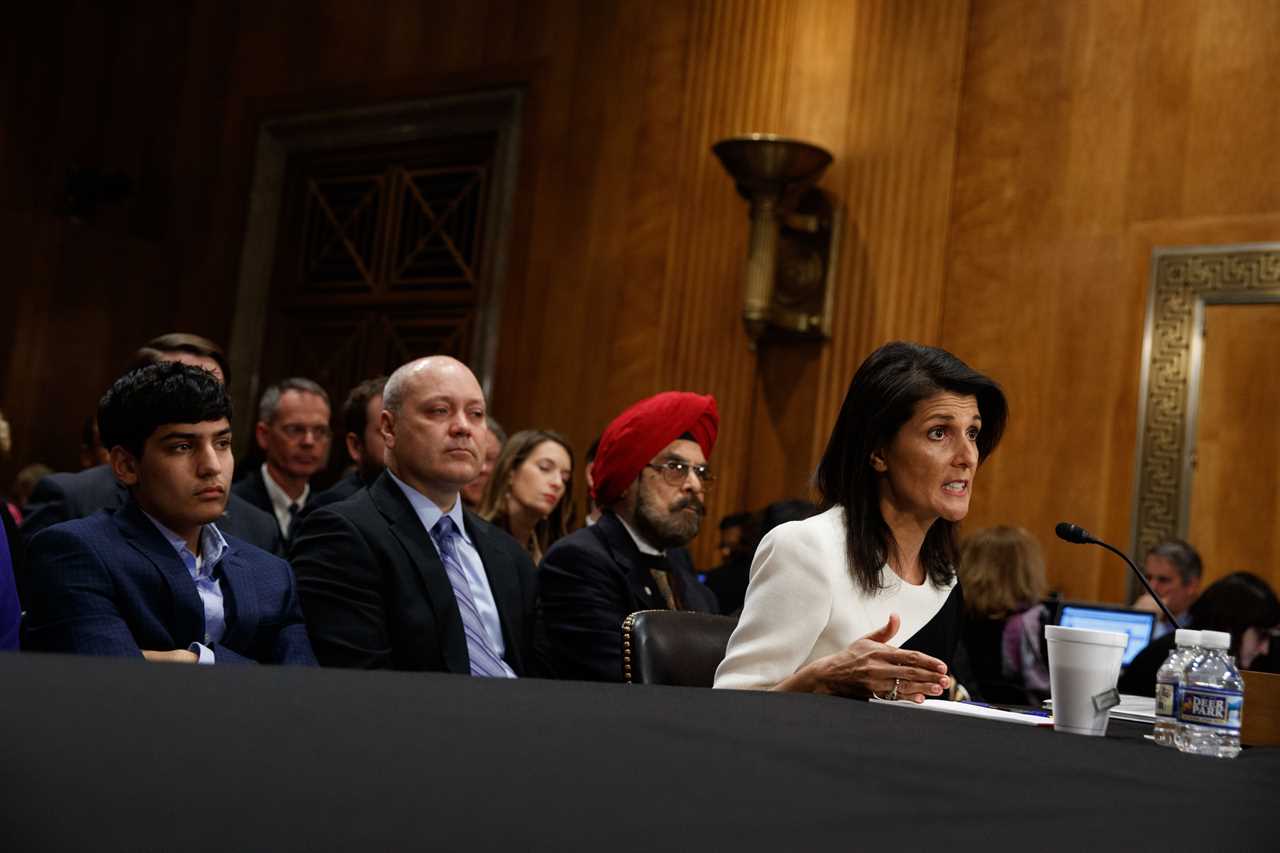
But I know now. And Haley should too.
In 2016, I sincerely thought she had pulled off the impossible, criticizing Trump on the issue of race but politically deft enough to not forever alienate him and his strong base of support. “I will not stop until we fight a man that chooses not to disavow the KKK. That is not a part of our party,” she said of Trump in February of that year. “That is not who we are.” She took far too much credit for removing the Confederate flag, but she was still building up credibility with voters of color I knew in South Carolina and beyond.
I was cheering on that version of Haley and didn’t even mind when she joined Trump’s cabinet, which she could explain as more a duty to country than loyalty to Trump. At the time, I would have considered voting for her to become president or would not have been upset had she made it to the White House without my vote.
But that was then. And that’s why I can’t fully empathize with her. Since 2016, I have watched her compromise her principles to achieve her personal ambitions. After becoming U.S. ambassador to the United Nations, I initially understood why she couldn’t fully condemn Trump as fiercely as she had during the campaign, but soon it became clear that she had abandoned her moral opposition to him altogether. In 2017, she declined to publicly rebuke Trump’s comments equating white supremacists with anti-racist protesters after Charlottesville. To cozy up to Trump in 2020 and maintain good standing among his overwhelmingly white base, she was comfortable using her immigrant story to downplay claims by Black people about the need for further racial progress, a tactic she has doubled down on. “It has become fashionable to say America is racist,” Haley said in her 2020 RNC speech. “That is a lie. America is not racist.” She goes on to decry “Democrats turning a blind eye to riots and rage” without ever acknowledging the murder of George Floyd by a white police officer that prompted the protests. America, Haley asserted vaguely, is “a work in progress.” And when she mentions the “white supremacist” who shot and killed nine Black people in a church, it is presented as evidence of how she engineered the removal of a “divisive symbol peacefully and respectfully.”

Let me be clear. The Confederate flag didn’t come down because of Haley’s leadership. It came down because Dylann Roof made it impossible to ignore what that flag has long stood for, and still does, the hatred of Black people, a hatred so deep it led Roof to massacre nine Black people after they welcomed and prayed for him. The flag came down because of the spilling of the blood of those Black people, including a sister of a friend of mine, not because of Haley’s supposed moral clarity on race. Indeed, in late 2019, Haley again muddied her position on the issue by saying the banner represented “service, sacrifice and heritage” for some people in South Carolina until Roof “hijacked” it.
Her willingness to use race when it helps her rather than her constituents is clear from her record. She prevented maybe a quarter of a million poor residents in South Carolina from securing health coverage when she refused billions of dollars for a Medicaid expansion under the Affordable Care Act. One of her most notable acts during her first term was signing into law a bill that established a new state law enforcement unit and required cops to check the immigration status of people they stopped or arrested if they suspected they might be here illegally, an anti-immigrant move that was red meat for her base. (Haley’s parents benefitted from the Immigration and Nationality Act of 1965, which smoothed the path for highly skilled immigrants.)
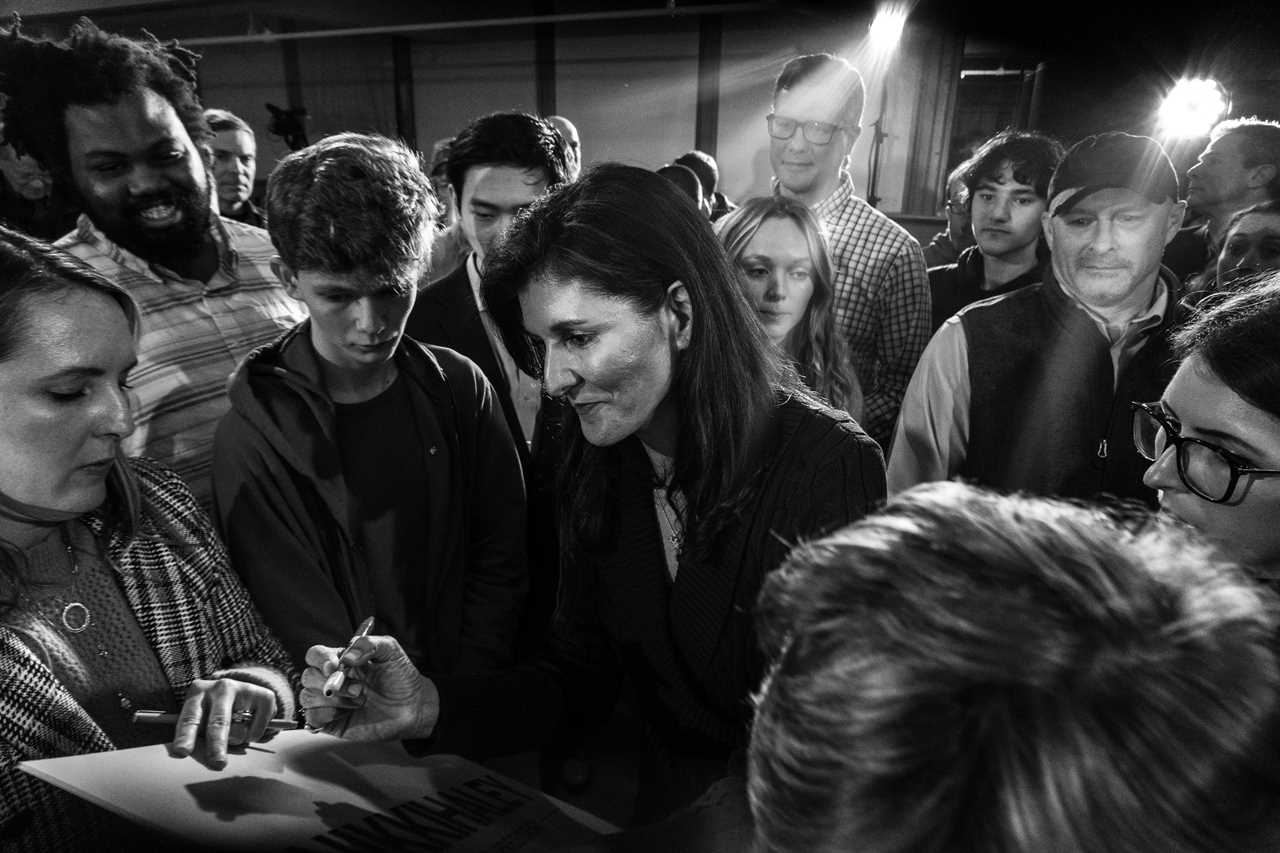
In February, when she announced her presidential run, she made clear that the 2016 Haley I considered politically talented and a potential breath of fresh air for a party that needed to rid itself of the open bigotry of Trump, was nowhere to be found. She invokes race in the very first words of the video, evoking the image of the train tracks that run through her home town and many other towns through South Carolina, to let us know she understands America’s race problem. But then she reprises her RNC rhetoric. “Some think our ideas are not just wrong but racist and evil,” she said. “Nothing could be further from the truth.”
It was another deflection from the racism she supported in the form of Trump, and from the very real racism that continues to hold back too many of the Black and brown people who grew up like where Haley and I did. It was a reminder to GOP voters that she is eager to give them a pass on the issue, ensuring them she won’t make them too uncomfortable in exchange for their vote.
Given our backgrounds, Haley and I should be allies. But I haven’t been able to support her because she’s decided to deploy her inspiring story — it’s no easy feat to become the first woman and person of color to serve as South Carolina’s governor — in service of men and women who have been fighting rather than advancing racial progress.
I want that 2016 Haley back in 2024. But I fear she’s gone forever.
----------------------------------------
By: Issac J. Bailey
Title: Opinion | I Know What Nikki Haley Has Gone Through. That’s Why Her Rhetoric on Race Infuriates Me.
Sourced From: www.politico.com/news/magazine/2023/03/26/nikki-haley-race-rhetoric-2024-election-00084650
Published Date: Sun, 26 Mar 2023 06:00:00 EST






